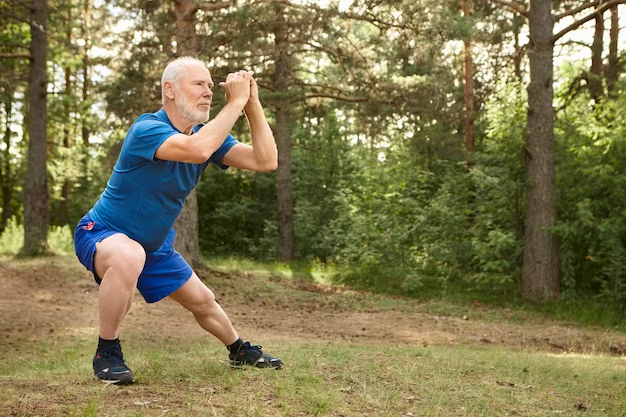As men age, prostate health becomes an increasingly important concern. The prostate gland, which plays a key role in the male reproductive system, is prone to issues like benign prostatic hyperplasia (BPH), prostatitis, and prostate cancer as men get older. The good news is that there are proactive steps you can take to maintain prostate health and reduce the risk of these conditions. In this article, we’ll explore how aging affects the prostate, what you can do to stay proactive, and how to recognize warning signs that may require medical attention.
How Aging Affects the Prostate
The prostate undergoes natural changes as men age. Here’s what typically happens:
- Prostate Enlargement (BPH):
- After age 40, the prostate often begins to grow, a condition known as benign prostatic hyperplasia (BPH). By age 60, about 50% of men have BPH, and by 85, this number rises to 90%.
- An enlarged prostate can press against the urethra, causing urinary symptoms like frequent urination, weak urine flow, and difficulty emptying the bladder.
- Increased Risk of Prostate Cancer:
- Prostate cancer is the most common cancer among men, and the risk increases significantly with age. About 60% of prostate cancer cases are diagnosed in men over 65.
- Prostatitis:
- Inflammation of the prostate (prostatitis) can occur at any age but is more common in older men. It can cause pain, urinary issues, and flu-like symptoms.
Proactive Steps for Prostate Health
While aging is inevitable, there are several ways to support prostate health and reduce the risk of prostate-related issues:
1. Eat a Prostate-Friendly Diet
A healthy diet is one of the most effective ways to support prostate health. Focus on:
- Lycopene-rich foods: Tomatoes, watermelon, and pink grapefruit contain lycopene, an antioxidant linked to a lower risk of prostate cancer.
- Omega-3 fatty acids: Found in fatty fish like salmon, walnuts, and flaxseeds, omega-3s reduce inflammation and support overall health.
- Cruciferous vegetables: Broccoli, cauliflower, and Brussels sprouts contain compounds that may protect against prostate cancer.
- Limit red meat and dairy: High consumption of red meat and full-fat dairy has been linked to an increased risk of prostate issues.
2. Stay Physically Active
Regular exercise is crucial for maintaining prostate health and overall well-being. Benefits include:
- Reducing the risk of BPH and prostate cancer.
- Improving urinary symptoms associated with an enlarged prostate.
- Helping maintain a healthy weight, which is important for prostate health.
Recommended Activities:
- Aerobic exercises like walking, swimming, or cycling.
- Strength training to maintain muscle mass.
- Pelvic floor exercises to improve bladder control.
3. Maintain a Healthy Weight
Obesity is a risk factor for both BPH and prostate cancer. Excess body fat can lead to hormonal imbalances and inflammation, which may contribute to prostate issues. Aim to maintain a healthy weight through a balanced diet and regular exercise.
4. Stay Hydrated
Proper hydration is essential for urinary and prostate health. Drinking plenty of water helps flush out toxins and supports kidney function. However, avoid excessive fluid intake before bed to reduce nighttime urination.
5. Avoid Smoking and Limit Alcohol
Smoking and excessive alcohol consumption can increase the risk of prostate problems. Quitting smoking and moderating alcohol intake can significantly improve prostate health and overall well-being.
6. Get Regular Screenings
Regular prostate screenings are crucial for early detection of prostate issues, especially as you age. Talk to your doctor about:
- PSA Test: Measures prostate-specific antigen levels in the blood, which can indicate prostate cancer or BPH.
- Digital Rectal Exam (DRE): Allows the doctor to physically check the prostate for abnormalities.
Screening Guidelines:
- Men over 50 should discuss prostate screenings with their doctor.
- Men at higher risk (e.g., African-American men or those with a family history of prostate cancer) should start screenings at 40–45.
7. Consider Supplements
Certain supplements may support prostate health, but always consult your doctor before starting any new regimen. Popular options include:
- Saw Palmetto: May improve urinary symptoms associated with BPH.
- Zinc: Supports immune function and prostate health.
- Beta-Sitosterol: Can improve urinary flow and reduce inflammation.
Warning Signs to Watch For
As you age, it’s important to be aware of symptoms that may indicate a prostate issue. These include:
- Difficulty urinating or a weak urine stream.
- Frequent urination, especially at night.
- Blood in urine or semen.
- Pain or discomfort in the pelvic area, lower back, or during urination.
- Erectile dysfunction or pain during ejaculation.
If you experience any of these symptoms, consult a healthcare professional promptly. Early detection and treatment can make a significant difference in outcomes.
Conclusion
Aging is a natural part of life, but it doesn’t mean you have to accept declining prostate health. By adopting a proactive approach—through a healthy diet, regular exercise, routine screenings, and lifestyle changes—you can significantly reduce your risk of prostate issues and maintain a high quality of life as you age. Don’t wait until symptoms arise; start taking steps today to protect your prostate health for the future.
References
- American Cancer Society. “Prostate Cancer Risk Factors.” https://www.cancer.org
- National Institute of Diabetes and Digestive and Kidney Diseases. “Prostate Enlargement (BPH).” https://www.niddk.nih.gov
- Harvard Health Publishing. “5 Ways to Protect Your Prostate.” https://www.health.harvard.edu
- Mayo Clinic. “Prostate Health: What You Need to Know.” https://www.mayoclinic.org
- WebMD. “Prostate Health and Aging.” https://www.webmd.com

